12 Magical Family Road Trip Memories Younger Generations Won’t Get To Experience
It's up to Gen X and baby boomer nostalgia to keep this kind of road trip magic alive.
 maxbelchenko | Shutterstock.com
maxbelchenko | Shutterstock.com Despite not having the luxury of technology back in their — from digital GPS systems, to entertainment, and fancy car amenities — many people in older generations cherish fond memories they made on family road trips. Certainly, given how times have changed, there are a few magical family road trip memories that younger generations won’t get to experience.
Following the Airline Deregulation Act of 1978, airplane travel began to boom and road trips slowly declined in popularity. The invention of handheld technology also meant that even when on the road, coming up with ways to pass the time together became less of a necessity.
While younger generations get to craft their own unique memories, filled with new technology advancements and convenient road trip alternatives to traditional “rights of passage,” Gen X and baby boomers will sit idly by, basking in the nostalgia of their vacations.
Here are 12 magical family road trip memories younger generations won’t get to experience
1. Fighting to fold up a used paper map
 People Images Yuri A | Shutterstock.com
People Images Yuri A | Shutterstock.com
It’s not surprising that the majority of younger generations and their families aren’t using a paper map on their road trips with the technological conveniences of GPS systems and online maps. However, they also don’t get to experience the thrill of unwinding a huge paper map on their dinner table in anticipation of a vacation or trying to fold it back up in the passenger seat of a station wagon.
It’s a learned skill, and subtle right of passage, that Gen Zers and other younger generations never had to learn — It’s become a habit to use their phones, so much so that nearly 83% of Gen Zers rely completely on cellular maps to get where they need to go, according to an Ordnance survey.
2. Battling over the best seat in the car
 Jacob Lund | Shutterstock.com
Jacob Lund | Shutterstock.com
While fighting over “shotgun” or the comfiest seat in the car is still a fight amongst siblings and families on their road trip — one that’s probably more “magical” in hindsight — the most nostalgic seat that Gen Xers and baby boomers remember is largely not an option for younger generations anymore.
A trend towards safer vehicles in the U.S. largely pushed out the traditional “bench seat” in many American cars, taking away the mighty and fought-over middle front seat from millions of young children.
3. Getting lost and finding random scenic views
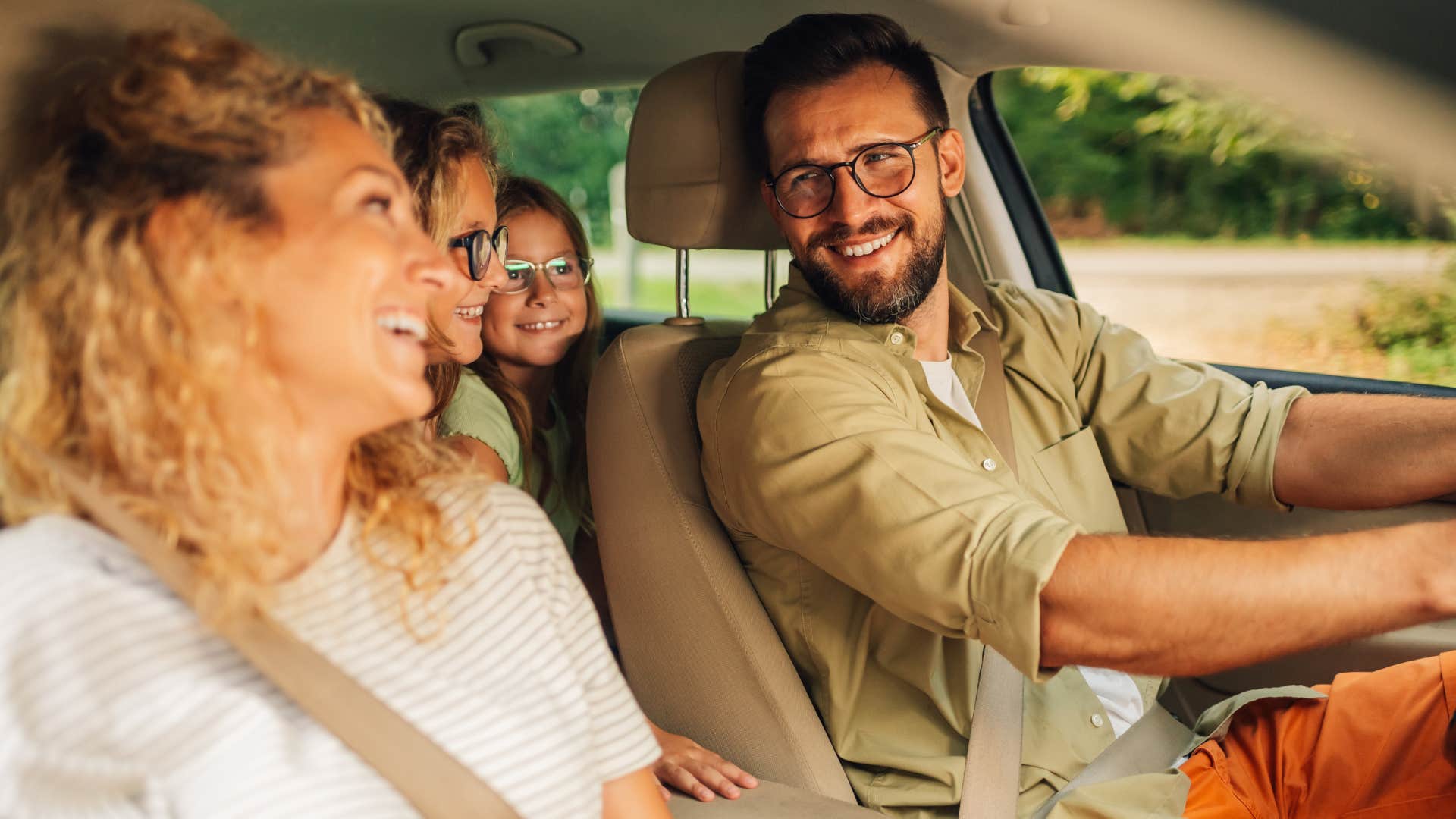 Zamrznuti tonovi | Shutterstock.com
Zamrznuti tonovi | Shutterstock.com
By almost completely relying on digital maps and GPS technology to get by, many families seldom get completely lost — in the kinds of ways you did with a paper map that was nearly impossible to read at night or in storms.
A study from UnitedTires reveals that nearly 93% of their respondents said they needed a GPS to get around, likely getting lost without it. So, while paper maps have almost completely disappeared as a magical road trip essential, the tendency to get lost without service or a cell phone battery is still ever-present.
4. Playing random road games
 New Africa | Shutterstock.com
New Africa | Shutterstock.com
A study from the Journal of Adolescent Health finds that an unsettling 38% of Americans used their phones while driving, so it’s not surprising that other passengers in the car are equally drawn to using their phones on a longer road trip.
With the emergence of new car technologies like TV screens, phone apps, social media, and even digital reading options — there’s a million things kids would rather be doing than playing “I Spy” or badgering truck drivers to honk their horns.
5. Navigating through random radio channels and mixtapes
 Fast-stock | Shutterstock.com
Fast-stock | Shutterstock.com
With more Bluetooth and CarPlay capabilities in cars than ever before, today’s generation of road-trippers can pick whatever music they want instead of shuffling through their dad’s old mixtapes or trying to scan their way through random static-filled radio stations.
6. Stopping at rest stops for fast food, gas, and stretches
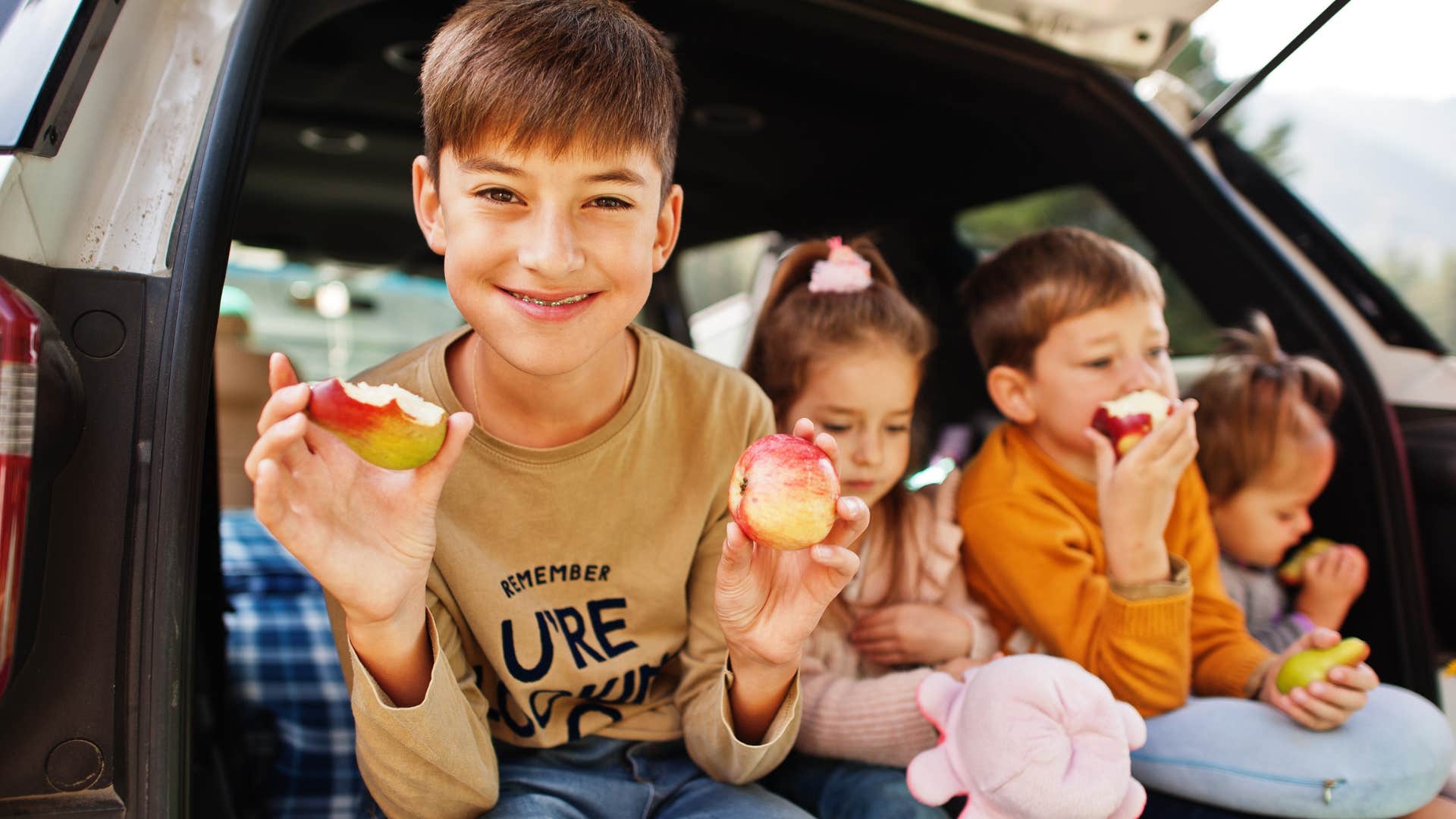 AS Photo Family | Shutterstock.com
AS Photo Family | Shutterstock.com
According to Morgan Stanley, the majority of consumers today are more focused on prioritizing convenience over affordability — even for seemingly small things like eating on a road trip. Instead of spending the extra time planning, cooking, preparing, and packing a cooler for a roadside picnic at a rest stop or campsite — that many Gen Xers and baby boomers remember being a highlight of their trips with a grill and picnic table — they opt for fast food that’s much quicker.
Many younger generations like Gen Z are also more prone to prioritize nutrition over affordability, not as a sign of financial status, but rather a sign of health that’s only recently become a financial luxury in recent years. To opt for both convenience and nutrition, you may see them indulging at the hot bar at Whole Foods or getting a to-go meal from another organic grocery store on their road trips.
7. Napping in the backseat without seatbelts
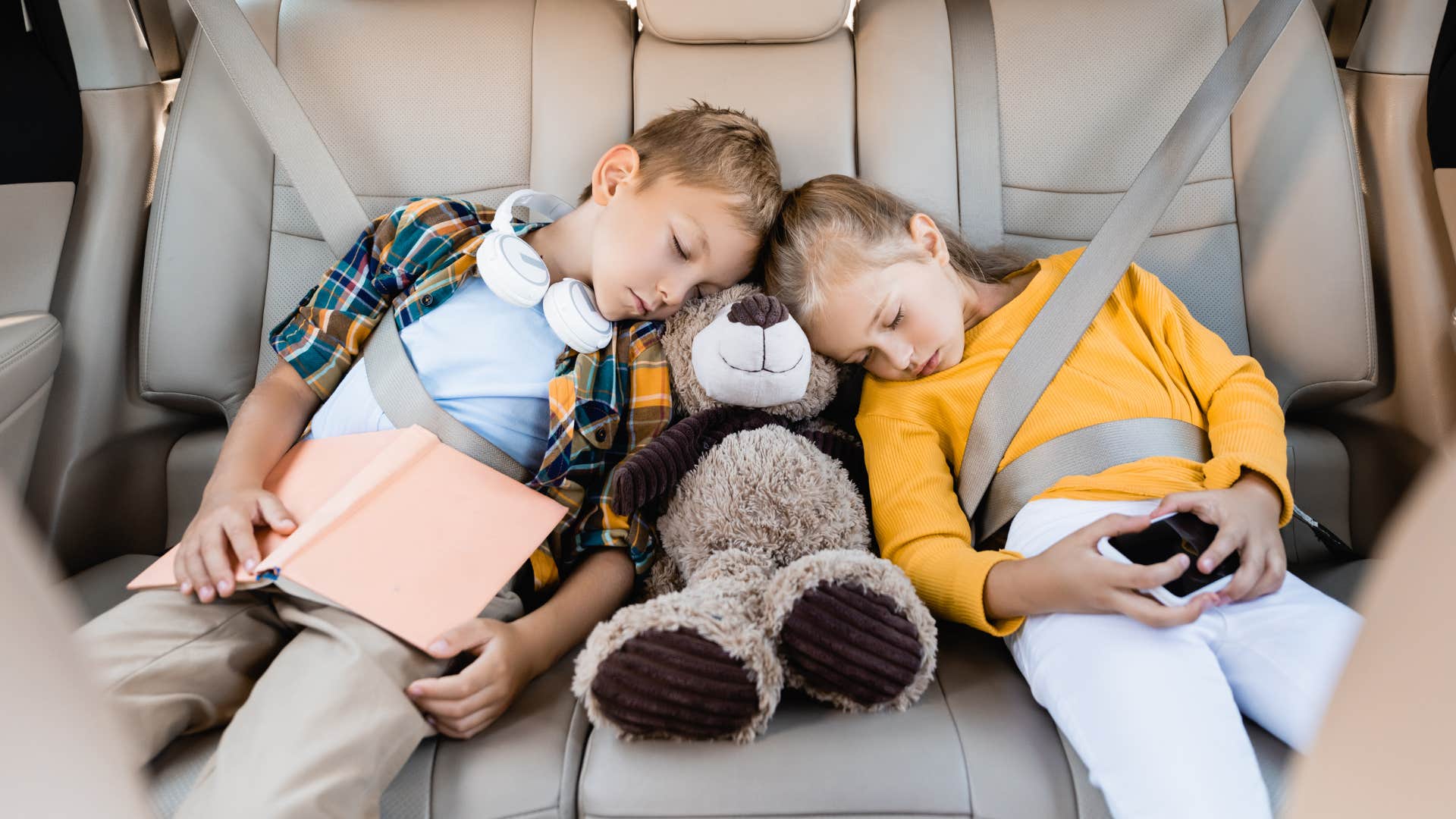 Lightfield Studios | Shutterstock.com
Lightfield Studios | Shutterstock.com
According to the Insurance Institute for Highway Safety, there’s been a surge in seatbelt laws across the country, including increasing accessibility to information urging passengers to wear them in the car. Especially as more vehicles continue adding persistent seat belt reminders, it’s much harder to forget wearing a seatbelt for convenience or comfort.
Of course, younger parents today are also much more concerned with their children’s safety, according to a report from the Berkeley Political Review, as “horror stories” and headlines become more accessible on the news and new-age parenting styles push themselves to the forefront.
8. Staying in an old motel
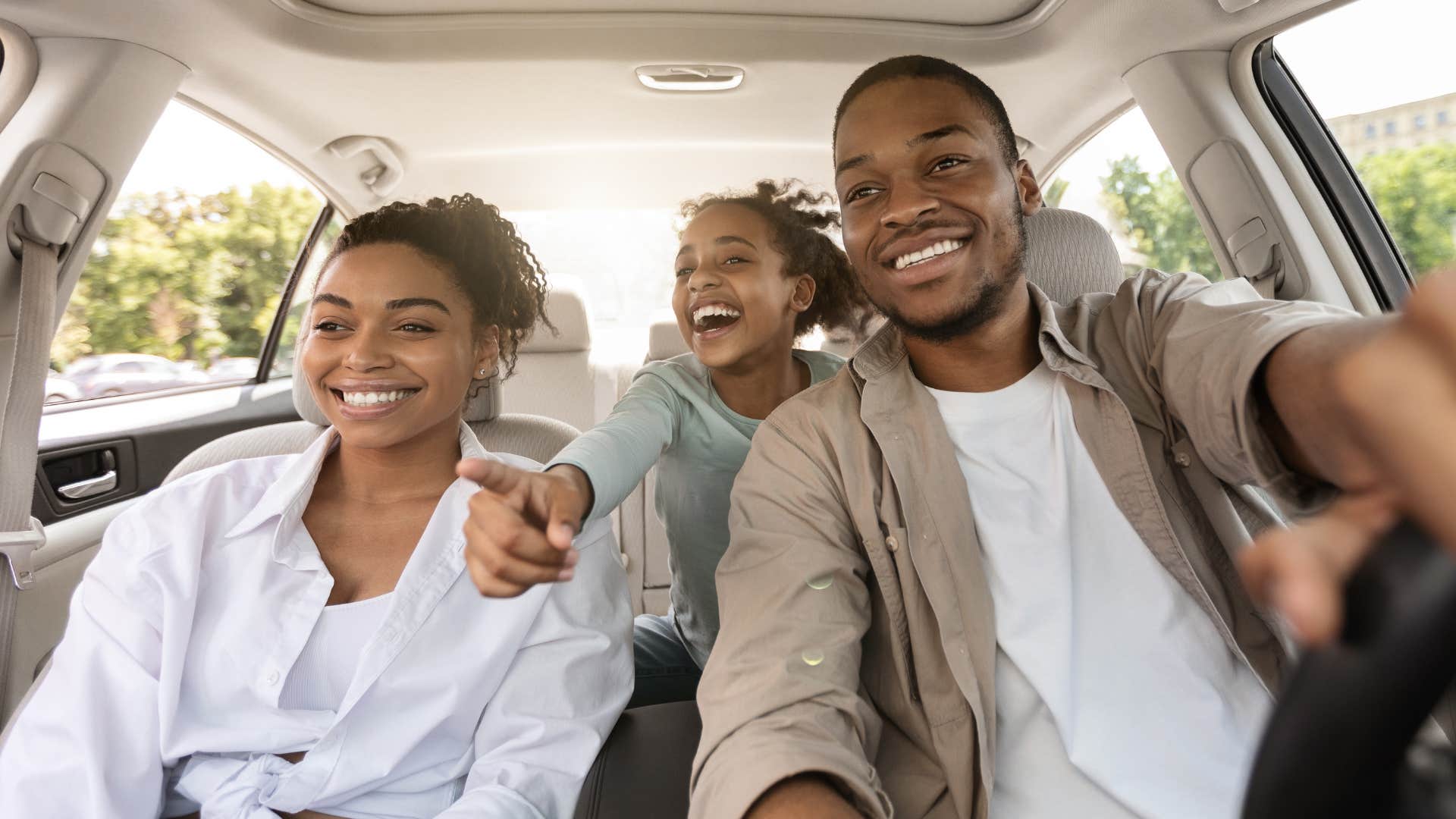 Prostock-studio | Shutterstock.com
Prostock-studio | Shutterstock.com
Despite the trend that hotels are getting more expensive for travelers today, many will still prioritize their own convenience and comfort — especially if they have the financial means to, which many vacationers today do. Even if that means booking the more expensive hotel, for their children’s safety or their general comfort, they’ll do it.
Of course, stopping a motel in general, no matter how old or seemingly “unsafe,” was still a magical road trip memory younger generations won’t get to experience — as most were forced to drive through the night and cut corners in their drives wherever possible.
9. Having breakfast for dinner at a diner
 oneinchpunch | Shutterstock.com
oneinchpunch | Shutterstock.com
While diners might’ve been the only food source on the road for many older generations, they’ve largely faded away from modern American culture with the emergence of new fast food options. Alas, the option of breakfast for dinner at a diner has slowly become a nostalgic memory rather than a reality for road-trippers.
10. Taking photos next to state signs
 ORION PRODUCTION | Shutterstock.com
ORION PRODUCTION | Shutterstock.com
How many people are realistically stopping on a busy interstate — one that’s surely more unsafe than it was two decades ago — to take a photo with a state sign? While there’s the occasional college students, generally passive about their safety, stopping to take a goofy picture, the majority of families would rather snap a still shot with their cell phones from the safety of their cars.
11. Driving with the windows down
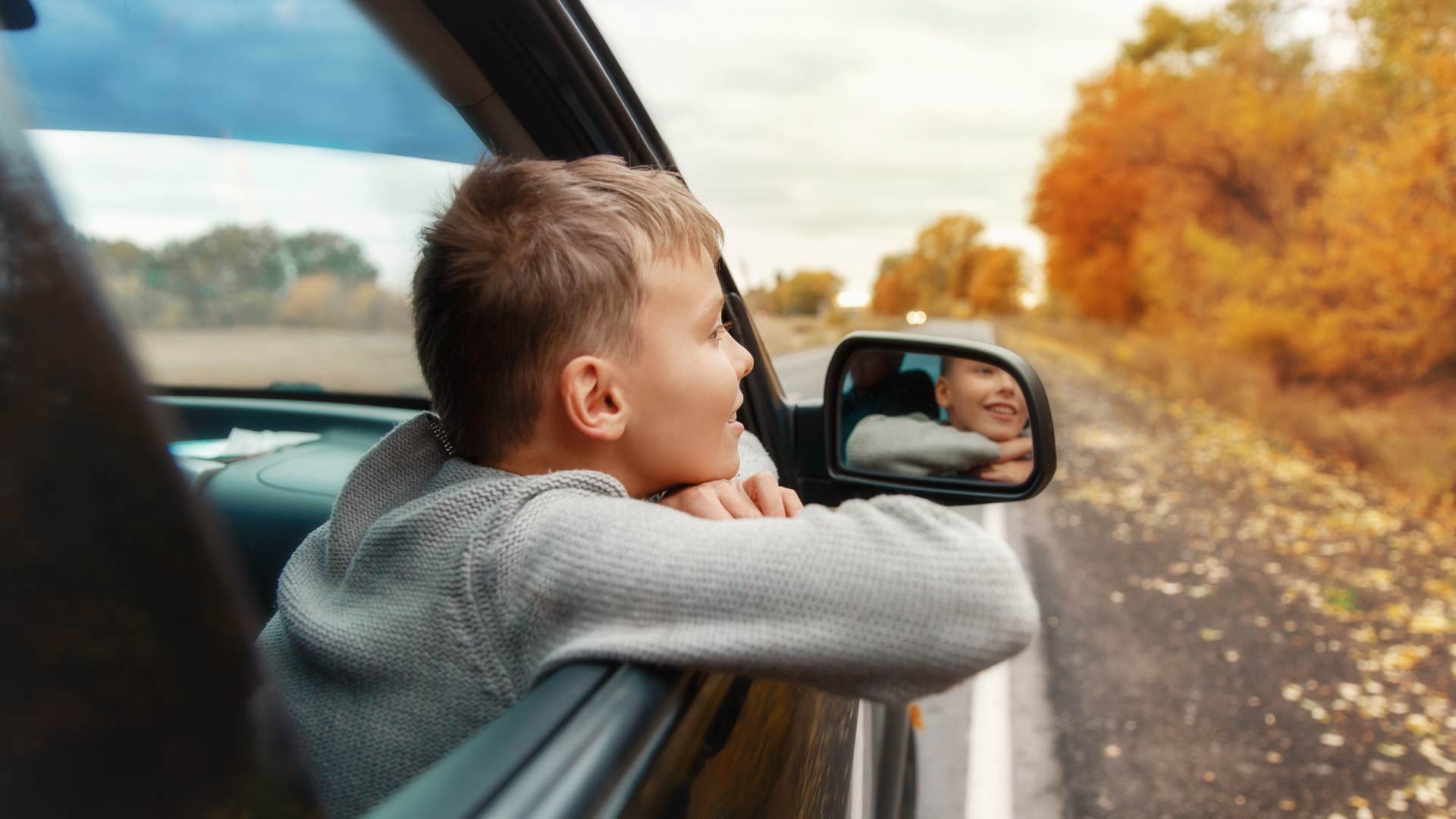 TetianaKtv | Shutterstock.com
TetianaKtv | Shutterstock.com
According to an AC Pro report, nearly 100% of new cars in the U.S. have system air conditioning, compared to a slightly smaller percentage just a few decades ago.
So, while some Gen Xers and baby boomers were forced to roll down their windows without air conditioning or when it was broken, many modern kids have the luxury of it all the time — even fully controllable in the back seat!
12. Singing road trip songs
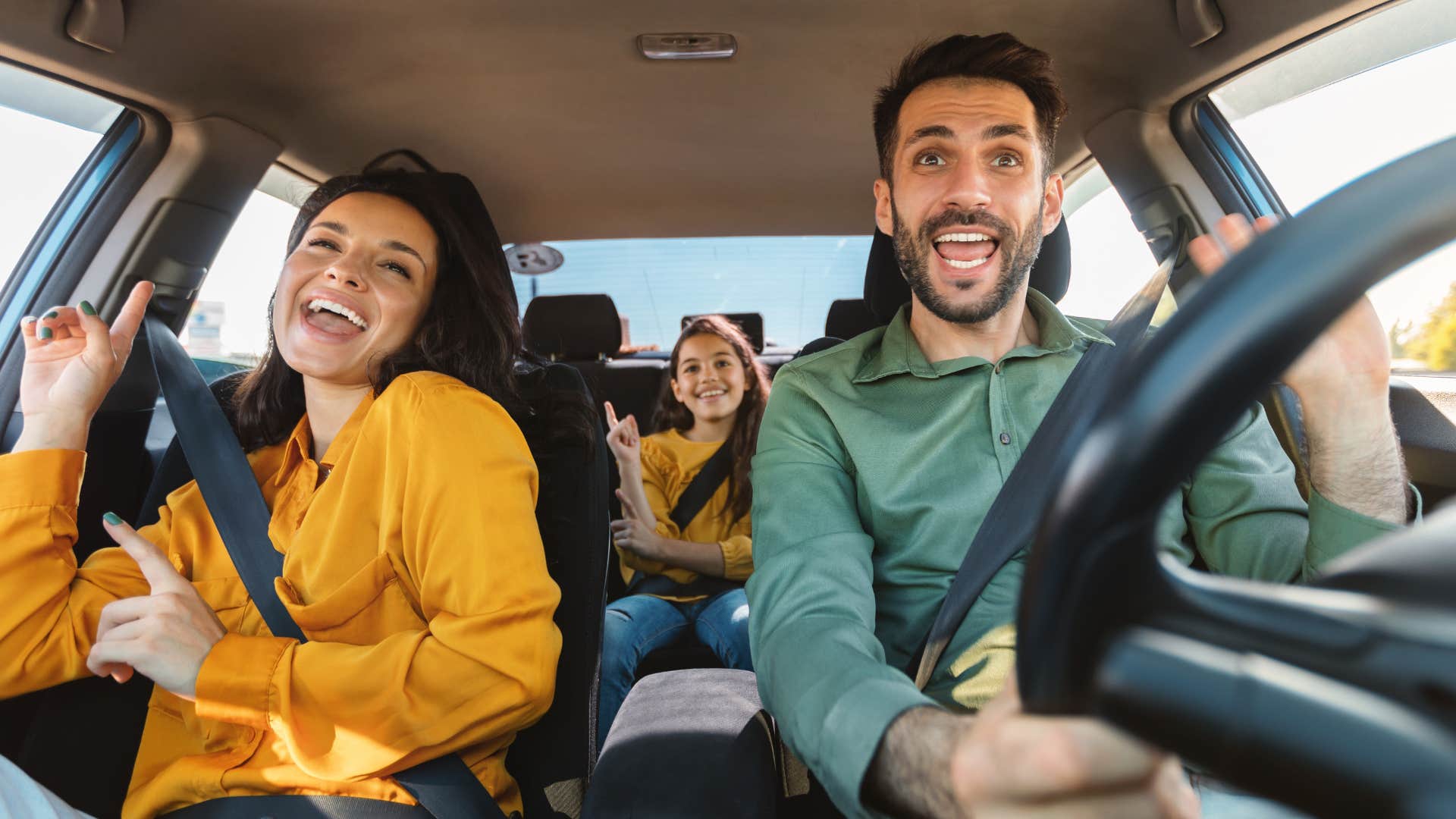 Prostock-studio | Shutterstock.com
Prostock-studio | Shutterstock.com
Equally annoying to older generations of parents and a unique bonding experience for American families on road trips, modern kids are, again, too indulged with their phones and technology to entertain any other game, song, or source of entertainment.
While they may still be singing along to modern songs on Bluetooth, the “99 Bottles of Milk” tradition is nearly gone.
Zayda Slabbekoorn is a staff writer with a bachelor’s degree in social relations & policy and gender studies who focuses on psychology, relationships, self-help, and human interest stories.

